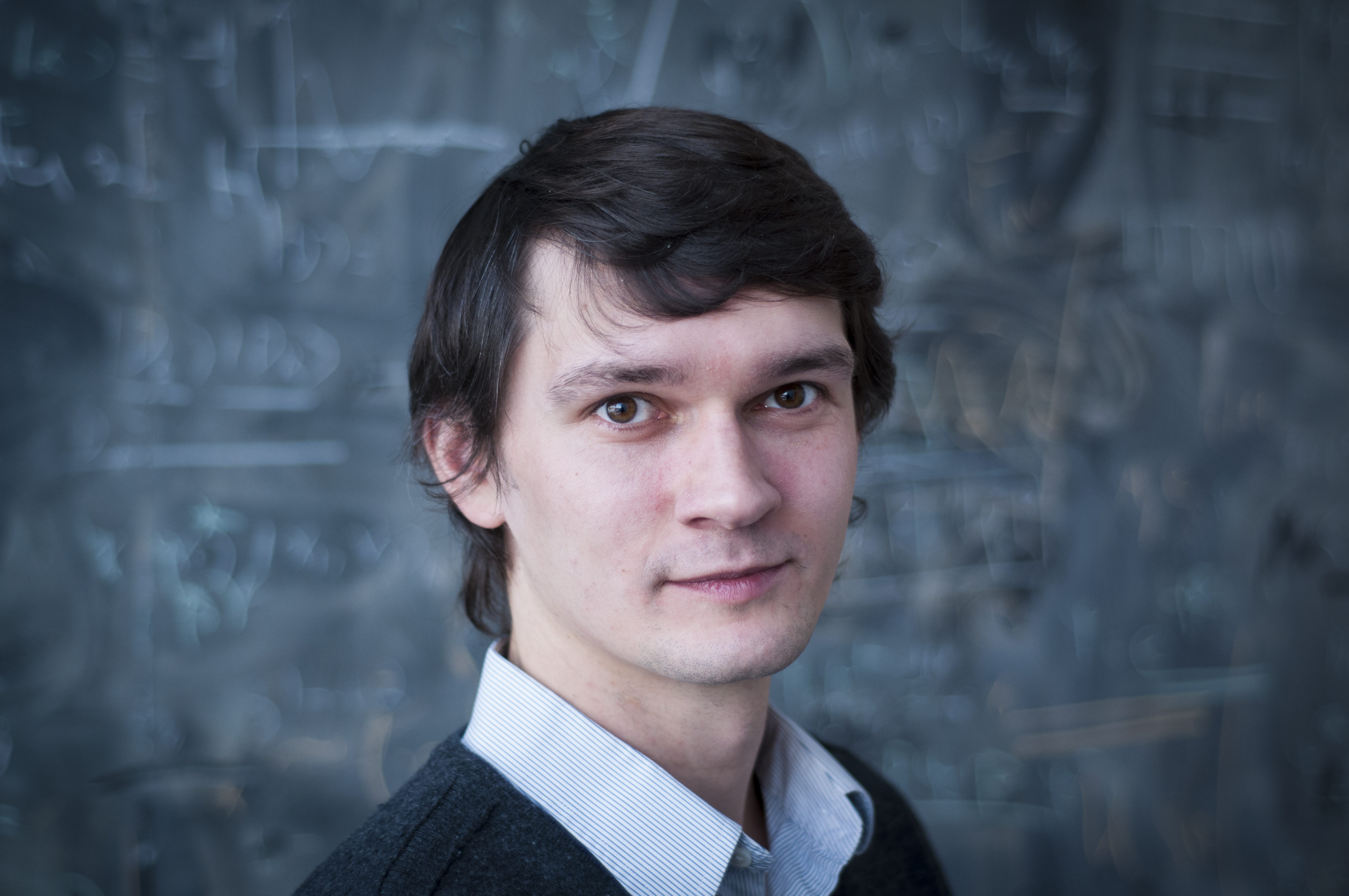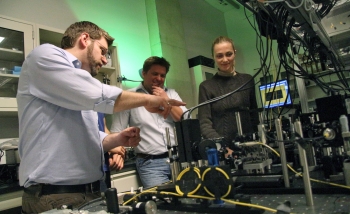Sloan Fellowship boosts bold new research
When exploring uncharted territory, it helps to get a sign that you’re headed in the right direction.
For Perimeter researcher Dmitry Abanin, whose research probes counterintuitive quantum phenomena in unique materials, such encouragement has just come in the form of a Sloan Research Fellowship.
“It’s a sign that we are on the right track, and that we should continue this line of research,” said Abanin, who joined Perimeter in 2013 following postdoctoral research positions at Harvard and Princeton.
“This fellowship encourages us to keep asking these questions.”
Abanin is among 126 recipients of the 2014 Fellowship, supporting early-career researchers in areas spanning physics, chemistry, biology, and related disciplines.
For more than a half-century, the prestigious Sloan Research Fellowships have been awarded annually to the “rising stars” of science in Canada and the United States, helping establish them as the next generation of scientific leaders.
The Alfred P. Sloan Foundation has recognized 32-year-old Abanin for his groundbreaking research aimed at discovering and understanding new materials with unique quantum properties, and discerning how those materials might be used in sophisticated future technologies such as quantum computers.
It is pioneering research that benefits from intense collaboration across disciplines, which Abanin says will be the greatest benefit of the $50,000 prize that accompanies the fellowship.
He and the postdoctoral researchers in his condensed matter theory group intend to put the Sloan funding to good use by travelling to conferences and workshops with other strong teams in condensed matter research, both theoretical and experimental.
Though based at Perimeter, Abanin is adjunct faculty with the University of Waterloo’s Physics and Astronomy department, and collaborates with experimentalists at the university’s Institute for Quantum Computing on the path toward sophisticated new technologies.
Other avenues of Abanin’s research include understanding how statistical mechanics emerges from microscopic quantum mechanics, and finding cases when ergodicity breaks down and new theoretical tools need to be developed. This will contribute to a greater understanding of how nature works at the quantum scale, and might also lead to quantum information applications.
“Many of these ideas will enrich our understanding of the world, and some will really click and lead to something big,” he says.
Awards like the Sloan Research Fellowship, he adds, support this kind of fundamental science into relatively unexplored areas where important discoveries await.
“For a society to really grow, it needs people who are pushing the boundaries of what’s known to make new progress,” he says.
“That’s why this kind of fellowship is important – it supports people who are probing the edges of knowledge. It will help me, my group, and our research go farther.”
About PI
Perimeter Institute is the world’s largest research hub devoted to theoretical physics. The independent Institute was founded in 1999 to foster breakthroughs in the fundamental understanding of our universe, from the smallest particles to the entire cosmos. Research at Perimeter is motivated by the understanding that fundamental science advances human knowledge and catalyzes innovation, and that today’s theoretical physics is tomorrow’s technology. Located in the Region of Waterloo, the not-for-profit Institute is a unique public-private endeavour, including the Governments of Ontario and Canada, that enables cutting-edge research, trains the next generation of scientific pioneers, and shares the power of physics through award-winning educational outreach and public engagement.





